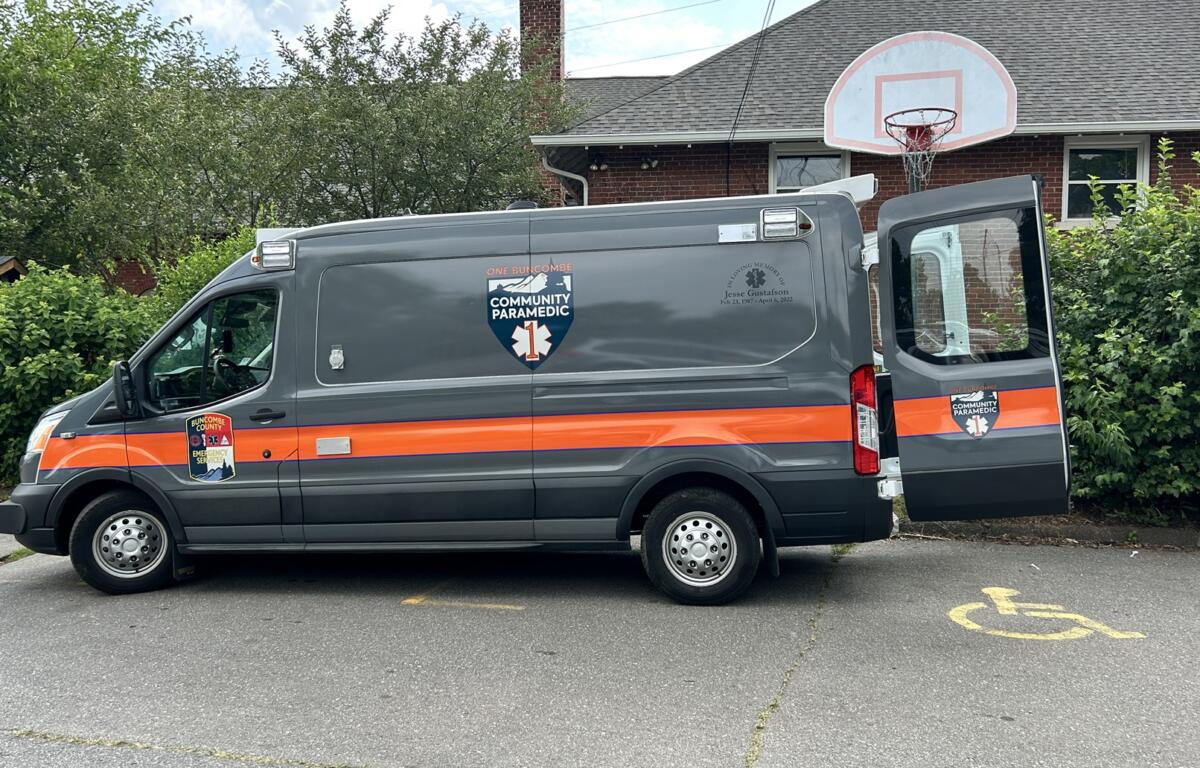ASHEVILLE, N.C. (828newsNOW) —
A program that has helped thousands of community members experiencing addiction and other behavioral health challenges could get a more than $500,000 boost from Buncombe County commissioners on Tuesday.
The Community Paramedic Collaborative started in August 2020 in response to the increasing number of opioid-related overdoses and deaths, county officials said.
“While the community paramedics respond to all calls related to overdose in Buncombe County, the team aims to serve target populations in Buncombe County, including the homeless population, people in a behavioral health or mental health crisis, marginalized or vulnerable populations with little or no access to primary care and wound care, and those dealing with illicit substance misuse/addiction seeking support or treatment,” county spokesperson Stacey Wood said.
Commissioners are set to vote Tuesday on reallocating $514,085 in Covid-19 Recovery Funds to the program, which would allow four positions to be extended through June 30, 2026. The original expiration was Dec. 31, 2024. The funds also would provide $30,000 for mobile command center costs.
The Community Paramedic Collaborative Mobile Teams include:
Mental Help Team: Four mental health providers, two licensed clinical social workers (LCSWs) and two (licensed mental health counselors LMCHCs). This team works to provide low-barrier mental health support and case management to participants from all branches of the program. Team members evaluate and refer people directly to detox and rehab via a partnership with ADATC (Alcohol and Drug Abuse Treatment Center). They also work in partnership with the Buncombe County Sheriff’s Office Co-responder Unit to assist with crisis response. They are currently focused on reducing barriers to mental help for the BIPOC community.
Mobile Community Outreach Team (MCOT): EMTs and nurses work to bridge under-resourced people to primary care, mental health, and wound care services. This team works in partnership with providers from Mountain Area Health Education Center, Appalachian Mountain Community Health Centers and ADACT and is guided by a monthly mobile provider steering committee (MPSC).
Mobile Medication Assisted Treatment Team (MAT): Low-barrier buprenorphine induction, continued dosing and bridge to programs. Protocols are guided by the county’s in-house addiction medicine physician, Dr. Shuchin Shukla. The team collaborates with the BCSO jail medication-assisted treatment program.
Post Overdose Response Team (PORT): Countywide, live dispatch via 911.
Peer Support Services: This seven-person peer case management team is assigned to support participants through their recovery process. Peers are hand-paired with participants via a peer support coordinator. Currently, the team is working to increase access to recovery services for the BIPOC community.
“These teams are deployed routinely in teams and also as needed based on the type and complexity of the call,” Wood said.
Community paramedic teams are deployed on 24- and 12-hour shifts depending on team and job roles within the team, Wood said. Team composition is 12 FTE paramedics, four EMTs, four mental health clinicians, one nurse, one internal peer coordinator, one program case manager and five peer workers (subcontracted).
According to the county, 2022-23 connections by the numbers:
- 1,969 overdoses responses
- 694 agreed to follow up from PORT
- 366 individuals inducted onto MAT (MOUD)
- 1,396 additional follow-up MOUD dosings
- 251 successfully handed off to MAT provider – 71% retention rate
- 246 program intakes/SDOH plans completed
- 1,981 peer support sessions
- 112 one-on-one mental health clinician sessions with engaged participants
- 1,400 Narcan doses handed out
- Over 19,000 proactive homeless outreach interactions
Click here if you or a loved one are experiencing substance use disorder or need additional mental health support, help is closer than you think. To learn more, see: www.buncombecounty.org/safer.





